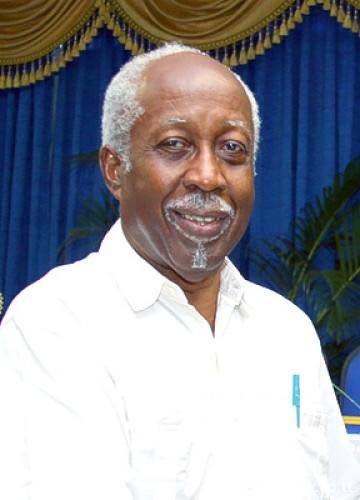Emancipation Day puzzlements

REGINALD DUMAS
Pt II
ON AUGUST 1 Minister Fitzgerald Hinds, as reported, announced the existence of a committee, until then publicly unknown, to look at “national spaces” with a view to “transforming the names to ones…we would better appreciate and recognise.”
There are those who firmly believe that real national transformation should go well beyond renaming streets and removing/replacing statues. I agree, but I also know that such actions – worldwide practices, after all – have important psychological and educational value: they often sensitise people to their own history and environment. Much more enlightenment in this regard is needed, of course, but every little helps.
There are also those who argue that you can’t erase your history and shouldn’t try. I also agree (though I’ve never heard of any public monument – in Germany, say – to Adolf Hitler, a major figure in 20th century world events. I wonder why). But what if you’re honouring people who had no connection whatsoever to you or your history?
It was for that reason that I wrote a letter to an editor in November 2017 questioning certain street names in Woodbrook like Methuen, French, Buller, Roberts, Colville, etc. Who were these people? All were British soldiers who fought against South African Afrikaners in the Second Boer War (1899-1902), killing whites and blacks alike or putting them – long before Hitler – in concentration camps. Alfred Milner, whose name has been removed from a UWI Hall, was at the time the British high commissioner for Southern Africa, and played an active role in the conduct of the war.
But at least Milner was later instrumental in the creation of the Imperial College of Tropical Agriculture, which became UWI’s Faculty of Agriculture. What relevance to TT do the Woodbrook Britons have? In the name of whose history do we elevate them?
In my 2017 letter I expressed the hope that the PoS City Corporation would “(move) quickly” to effect name changes. I added: “Does this country not have deserving personalities of its own, many from Woodbrook itself? Is there a Rudranath Capildeo Street? A Sylvester Williams? A Vidia Naipaul? A Wooding? An Abdulah? A CLR James?…If not, why?”
The corporation was mute. Two-and-a-half years later, in June 2020, I wrote direct to Mayor Joel Martinez, enclosing a copy of my 2017 letter, and “urge(d)” his council, with suggestions from the public, “to make the relevant changes.” I added that I was not seeking changes for the streets named after members of the Siegert family – Alfredo, Ana, Carlos, etc – given that family’s considerable contribution to TT.
The mayor didn’t favour me with even an acknowledgement of receipt of my letter. But now that officialdom seems to be moving forward on the issue (a day or two before Hinds’s remarks, the THA’s Farley Augustine had also spoken about a name-change policy, for Tobago only), I assume he will display interest.
On August 1 Minister Hinds also made mention of the International Decade for People of African Descent, proclaimed by a United Nations General Assembly resolution of December 2013 to cover the period January 1, 2015 to December 31, 2024. A second General Assembly resolution, of November 2014, set out a programme of activities for the implementation of the decade.
It was good of the minister to call attention to the existence of the decade. The only trouble is that he was doing so on August 1, 2022, more than seven-and-a-half years after the decade began. Since it ends on December 31, 2024, less than two-and-a-half years remain. I also wrote about the decade’s timeframe. In 2018 I said: “If the administrations in office here since the beginning of 2015 have taken any action (on the decade’s programme of activities), I haven’t heard.” I expressed similar sentiments the following year. Could Minister Hinds tell us what the Government – and the people must of course be consulted – has in mind for the short time left us?
Fortunately, all is not lost. Last December the UN set up a Permanent Forum for People of African Descent to continue the work – such as it has been – of the decade. The Caribbean representative on the forum is Dr June Soomer, a former Saint Lucia ambassador who is also, I understand, the chair of the UWI Open Campus Council.
Civil society here knows, I hope, that it must not always wait for governments to act. Have the organisations and individuals that pride themselves on their African heritage been trying to associate themselves with the decade’s offerings? Before Hinds spoke, were many of them even aware of the UN decisions on the matter? In general, African-descended or not, how much do we really know about ourselves and one another?


Comments
"Emancipation Day puzzlements"